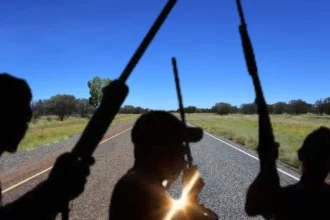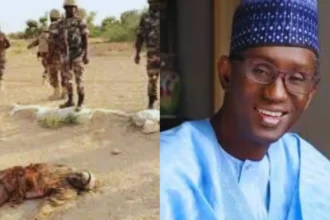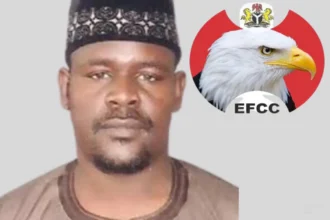Bashir El-Rufai, son of former Kaduna State governor Nasir El-Rufai, has come under intense criticism for a now-deleted tweet in which he appeared to threaten continued violence in Southern Kaduna if attacks on Fulani herdsmen persisted.
The controversy erupted on Tuesday when Mr. El-Rufai responded to an X user, @qykali, who accused his father of overseeing ethnic cleansing in Southern Kaduna during his eight-year tenure as governor. In response, Bashir El-Rufai wrote: “It is your stupid mother that is an elephant. And Southern Kaduna residents will keep seeing sheghe if they continue to attack indigenous Fulani herdsmen. Oloshi.”
The Hausa term “shege” used in his tweet was widely interpreted as a veiled threat, implying continued unrest in the violence-stricken region. The post sparked widespread outrage, prompting Mr. El-Rufai to delete it amid condemnation from various quarters.
The tweet reignited concerns over past statements made by his father, Nasir El-Rufai, who previously admitted to negotiating with and compensating Fulani herdsmen from neighboring countries to curb violence in Kaduna. Several X users criticized Bashir El-Rufai for his remarks, with some questioning the silence of his father over the incident.
Renowned human rights advocate and former National Human Rights Commission Chairman, Prof. Chidi Odinkalu, who have previously challenged Bashir Ahmad about Almajiri education also weighed in, saying, “So, get this: #VileLittleMan, @elrufai, is now officially opposition and his son is already threatening the people of #SouthernKaduna with #MassMurder. Guess what will happen when they get into the @NGRPresident. These people are sociopaths; #Genocidaires.”
This is not the first time Bashir El-Rufai has been embroiled in controversy. In 2019, during the trending #WhereisDadiyata campaign—seeking answers about the disappearance of Abubakar ‘Dadiyata’ Idris, a critic of his father—Mr. El-Rufai dismissed the concerns, labeling those involved as “clowns” and suggesting that Dadiyata was suffering the consequences of spreading falsehoods.
Following mounting criticism, Bashir El-Rufai issued a public apology on Tuesday. In a tweet, he stated: “My tweet about Southern Kaduna residents and persecuted Fulani herdsmen was in bad taste and also badly written in an attempt to make a point in the heat of the moment. I apologize for that to those that know me, and are aware that I don’t harbor such sentiments.”
Despite the apology, public reaction remains largely critical, with many questioning the sincerity of his statement and the broader implications of his remarks in a region already plagued by ethnic and religious tensions.


















